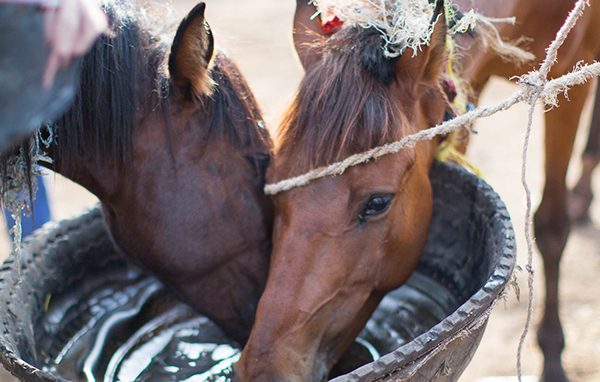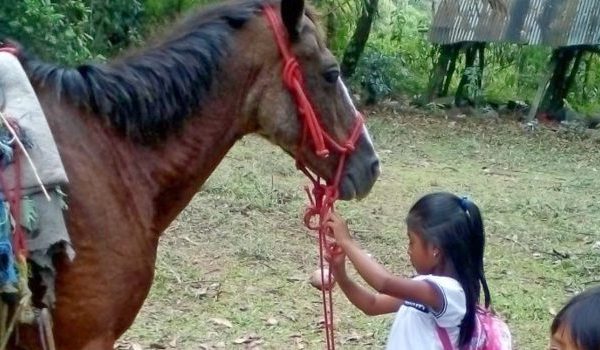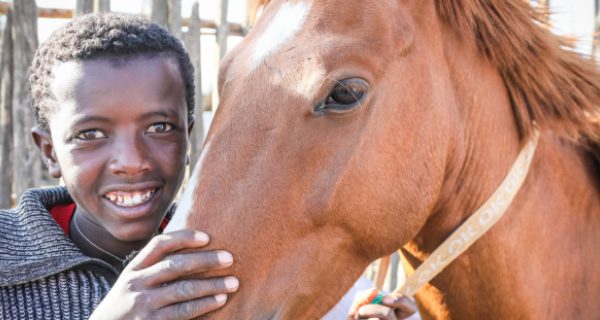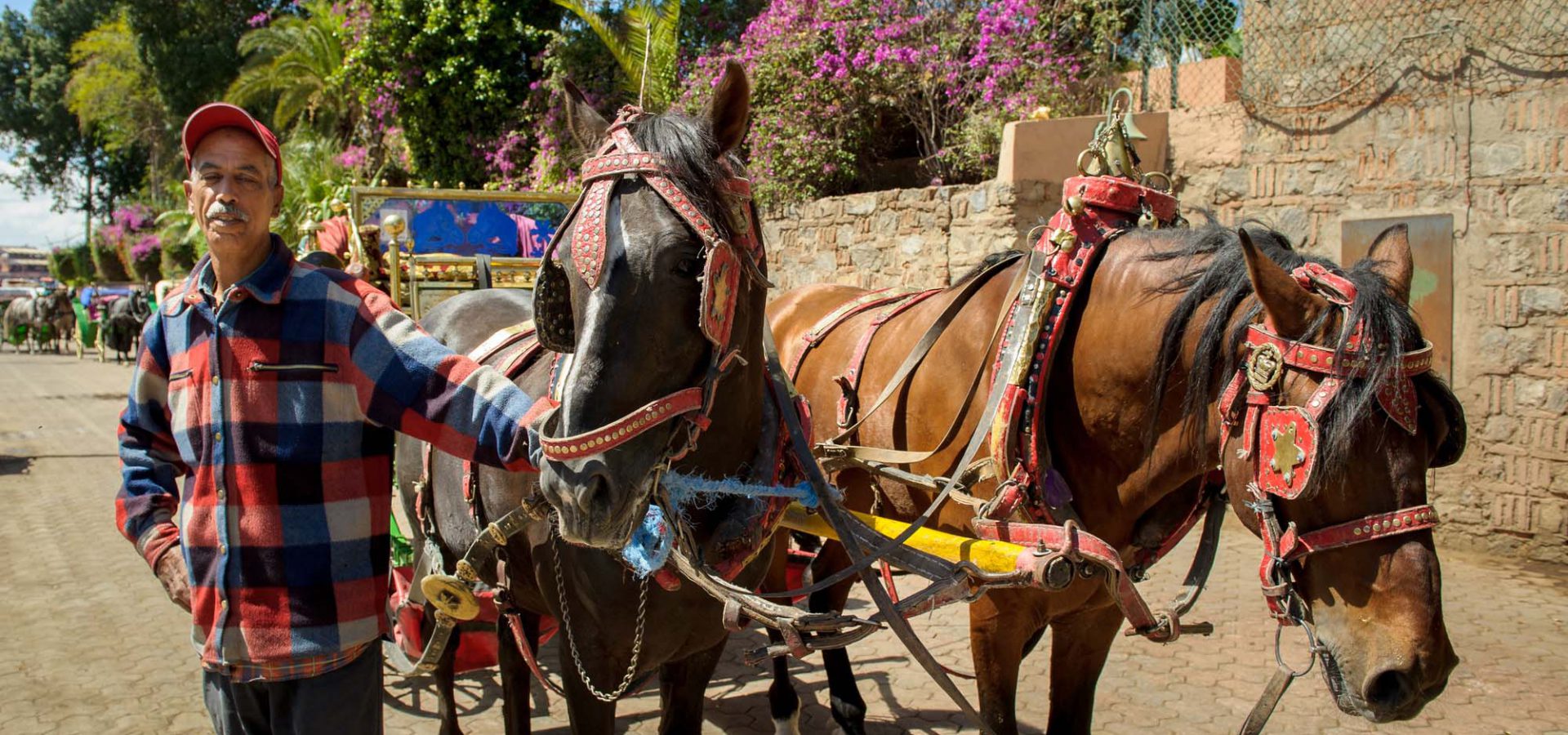
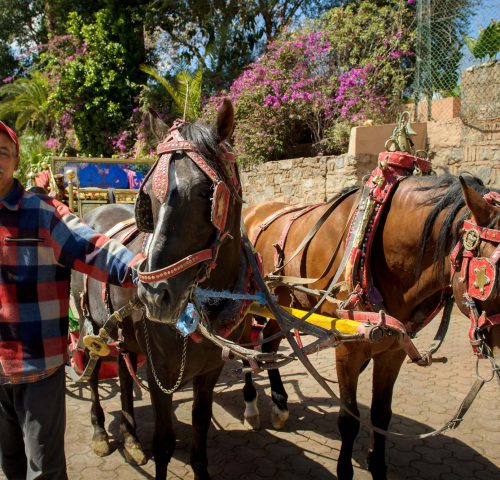
What are working horses?
We once relied heavily on working horses. Before motor vehicles, they were the most common form of transport and provided draught power for hauling heavy loads. They carried us to work, pulled our ploughs, and hauled our bricks. For many in countries where cars and tractors are an impossible expense, working horses are still the foundation of their life. Without them, life would be isolated and the chances of earning a liveable income limited.
Working Horses as Transport
Often a family’s horse is their only means of transport. They take children to schools that would otherwise be unreachable, helping to provide whole communities with hope for a better future. In many instances, they are the best means of transport for reaching hospitals, markets or providing owners the opportunity to see friends. Without their working horse many families would find it a huge struggle to perform these everyday activities that we take for granted.
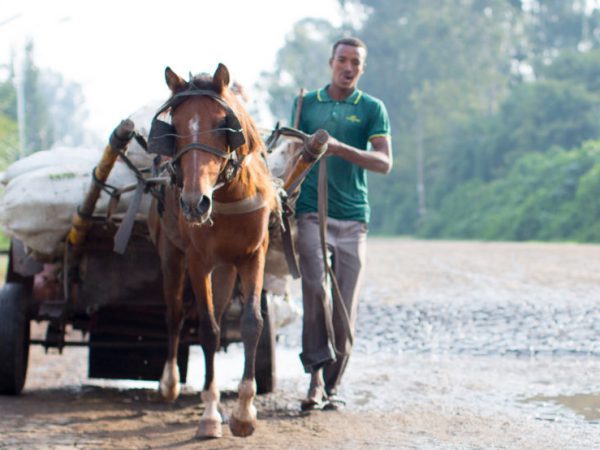
Working Horses Provide Livelihoods
When it comes to providing a livelihood, the job of a working horse comes in different forms.
For example, in Jordan, horses are heavily relied upon to support farming where they pull equipment and transport goods to market. They also assist in maintenance work around the farm by clearing logs and bringing in building materials.
In many countries, horses are popular in the tourist industry too. For example, in Morocco ‘caleche’ horses pull tourist carts. Not only are these horses providing their family’s income, but their presence attracts the tourists. This in turn increases chances of work for others in the area. Unfortunately, the harsh climates these horses work in mean they are prone to dehydration. SPANA provides troughs along their regular routes to make sure they have access to much needed water. In Jordan, riding holidays are also offered to attract the tourists. Who wouldn’t want the chance to horse-back ride through such a beautiful country?
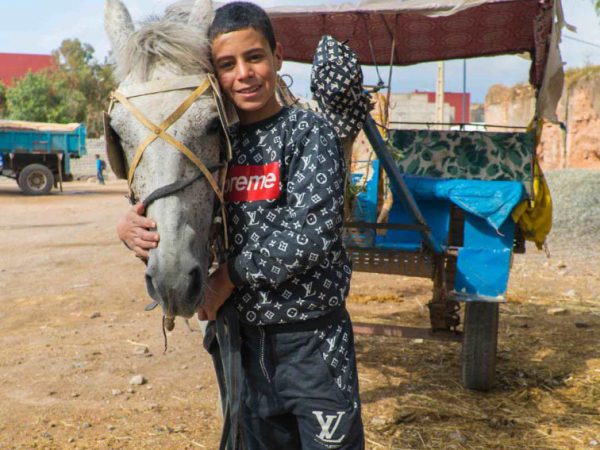
Working Horses at Home
The job of a working horse continues at home where they transport essential supplies such as firewood, coal or water. Women in particular benefit from working animals here – traditionally it falls to women and girls to fetch water from local streams or wells. By using the draught power of a donkey for example, women can transport larger quantities of water more easily which in turn means less time dedicated to this one critically important task.
For many girls in the Global South, having a working animal means that they have the time available to pursue an education and can more safely perform their chores in the process. Working horses are crucial to the lives of so many people in the world’s poorest countries.
However, there are many challenges to be faced. In most of these countries the climate is harsh, and dehydration is common. There is a lack of farriers so owners resort to making their own shoes which, if done incorrectly can cause lameness and painful infection. Often owners also turn to making their own harnesses, but again, if these do not fit well they cause sores leading to further infection. Unfortunately, local properly trained vets can be rare and expensive.
The owners of these working horses rely on them heavily and often feel a deep bond with them. SPANA teaches them to make suitable horse shoes and harnesses. Our aim is to provide even further assistance in the countries that need it most, teaching proper nutrition and husbandry skills to future animal owners and providing access to veterinary care in the process. Your contribution can help SPANA improve the lives of these hard-working horses.
Find out about the very specific diet of horses, with our horse feeding guide: What do horses eat?

